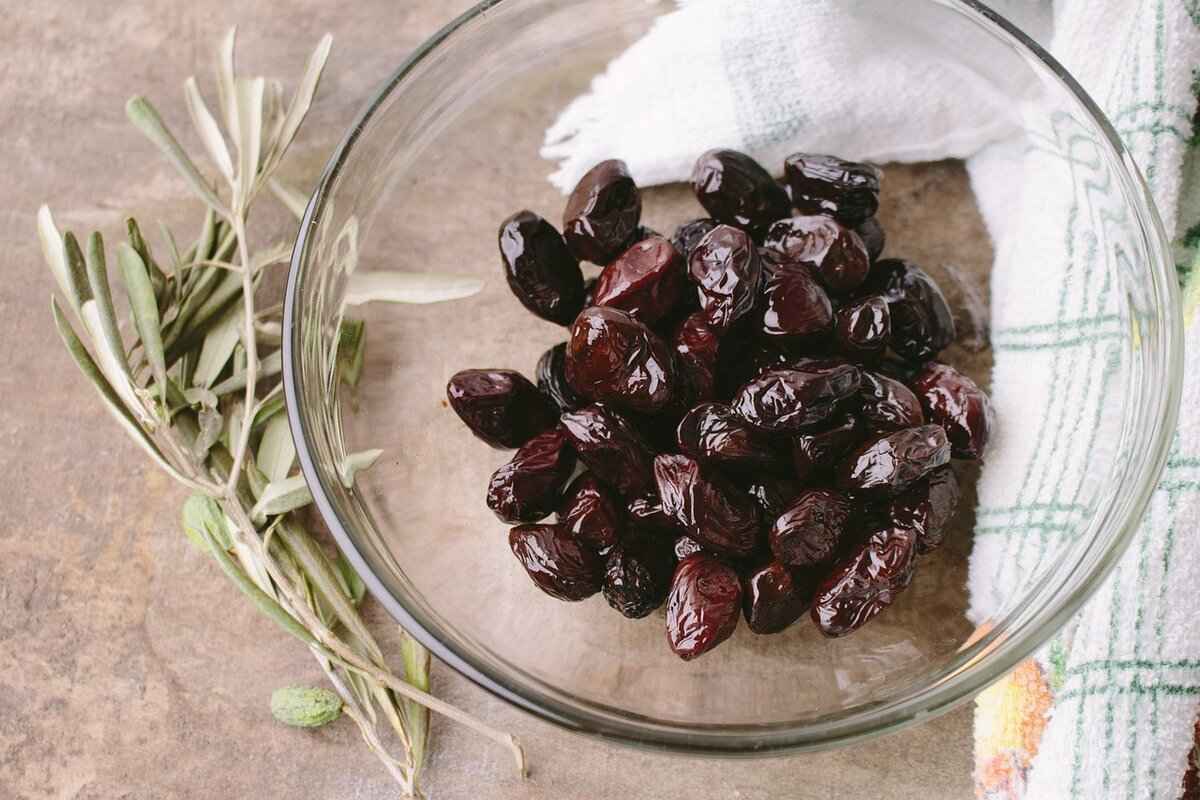Coconut oil and peanut oil are two popular cooking oils that offer distinct flavors and health benefits. This article delves into their differences, health advantages, cooking properties, and culinary applications, helping you make an informed decision for your kitchen.
Coconut oil is renowned for its unique composition of medium-chain triglycerides (MCTs). These fats are metabolized differently than long-chain fatty acids, potentially aiding in weight loss and enhancing metabolic health. Additionally, coconut oil has antimicrobial properties that may support immune function.
Peanut oil is rich in monounsaturated fats and vitamin E. These nutrients contribute to improved heart health by lowering bad cholesterol levels and promoting good cholesterol. The oil’s antioxidant properties can also enhance overall wellness, making it a valuable addition to a balanced diet.
When selecting an oil for cooking, understanding their smoke points and flavor profiles is crucial. Coconut oil has a lower smoke point than peanut oil, which affects its suitability for various cooking methods.
The smoke point of coconut oil ranges from 350°F (177°C) for unrefined to approximately 400°F (204°C) for refined versions. This makes refined coconut oil more appropriate for high-heat cooking methods.
Peanut oil boasts a high smoke point of around 450°F (232°C), making it ideal for frying and other high-temperature cooking techniques. This versatility allows it to be used in various culinary applications.
The flavor profiles of these oils are significantly different. Coconut oil imparts a subtle sweetness, making it a great choice for baking and desserts. In contrast, peanut oil offers a rich, nutty flavor that complements savory dishes.
Yes, coconut oil is frequently used in baking due to its unique flavor and ability to add moisture and richness to baked goods. It can replace butter or other oils in recipes, providing a delicious twist to traditional desserts.
Peanut oil is a staple in Asian cooking, particularly for stir-frying and frying. Its high smoke point and nutty flavor enhance the taste of traditional dishes, making it a preferred choice for many chefs.
When considering heart health, the choice between coconut oil and peanut oil can be influenced by their fatty acid compositions and effects on cholesterol levels.
Coconut oil contains a significant amount of saturated fats, which can raise LDL cholesterol levels. However, it also raises HDL cholesterol, complicating its overall impact on heart health. Moderation is key when incorporating coconut oil into your diet.
Peanut oil’s high monounsaturated fat content is beneficial for heart health, potentially lowering bad cholesterol levels and promoting cardiovascular well-being. Its antioxidant properties also contribute to overall heart health.
In conclusion, both coconut oil and peanut oil have their unique advantages and culinary uses. Depending on your cooking needs and health goals, you can choose the oil that best fits your lifestyle. Whether you prefer the rich flavor of peanut oil or the health benefits of coconut oil, both can be excellent additions to your kitchen.

What Are the Health Benefits of Coconut Oil?
Coconut oil has gained immense popularity in recent years, often touted as a superfood with numerous health benefits. This tropical oil is derived from the flesh of mature coconuts and is rich in medium-chain triglycerides (MCTs), which are a type of saturated fat that can be metabolized differently than long-chain fatty acids. The unique properties of coconut oil make it a fascinating subject for health enthusiasts and culinary experts alike.
One of the primary health benefits of coconut oil is its potential to aid in weight loss and enhance metabolic health. MCTs are rapidly absorbed by the body and can be converted into energy more efficiently than other fats. This can lead to increased energy expenditure and may help in reducing body fat, especially in the abdominal area.
- Supports Weight Management: Studies suggest that incorporating coconut oil into a balanced diet may help reduce appetite and promote fat loss.
- Boosts Brain Function: The MCTs in coconut oil can provide an alternative energy source for the brain, which may be beneficial for individuals with cognitive impairments.
- Enhances Heart Health: While coconut oil contains saturated fats, some research indicates that it may increase HDL (good) cholesterol levels, which is linked to a reduced risk of heart disease.
- Antimicrobial Properties: Coconut oil contains lauric acid, which has been shown to have antimicrobial effects, potentially helping to fight off harmful bacteria and viruses.
Additionally, coconut oil is often used in skincare and haircare products due to its moisturizing properties. When applied topically, it can help improve skin hydration and reduce symptoms of eczema and dermatitis. Its antioxidant properties also make it a popular choice for combating oxidative stress in the skin.
Coconut oil is incredibly versatile and can be incorporated into your daily routine in various ways:
- Cooking: Coconut oil’s high smoke point makes it suitable for frying and sautéing. Its unique flavor can enhance the taste of many dishes.
- Baking: It can be used as a substitute for butter or other oils in baking recipes, adding a subtle coconut flavor to cookies, cakes, and muffins.
- Skin and Hair Care: Use it as a moisturizer, makeup remover, or hair conditioner to reap its nourishing benefits.
While coconut oil offers several potential health benefits, it is essential to use it in moderation. Due to its high saturated fat content, excessive consumption may negatively impact cholesterol levels for some individuals. Therefore, it is advisable to consult with a healthcare professional before making significant dietary changes.
In conclusion, coconut oil is a unique oil with a variety of health benefits, particularly due to its MCT content. Its versatility in cooking and personal care makes it a valuable addition to many households. By understanding its properties and potential effects on health, individuals can make informed choices about incorporating coconut oil into their lifestyle.

What Are the Health Benefits of Peanut Oil?
Peanut oil is increasingly recognized for its numerous health benefits, making it a popular choice for cooking and culinary applications. This oil is derived from peanuts and is known for its distinctive flavor and high smoke point, which make it versatile in various cooking methods. However, its health benefits extend beyond just culinary uses. In this article, we will explore the health benefits of peanut oil, emphasizing its nutritional content and how it can contribute to overall wellness.
Peanut oil is primarily composed of monounsaturated fats, which are known to be heart-healthy. These fats can help lower bad cholesterol (LDL) levels while raising good cholesterol (HDL) levels in the body. Additionally, peanut oil is rich in vitamin E, a powerful antioxidant that plays a crucial role in protecting cells from oxidative stress and inflammation.
The consumption of peanut oil can have a positive impact on heart health. The high levels of monounsaturated fats found in peanut oil are linked to a reduced risk of heart disease. Studies suggest that incorporating peanut oil into your diet may help lower cholesterol levels, thereby promoting better cardiovascular health. Furthermore, the presence of vitamin E in peanut oil contributes to maintaining healthy blood vessels and reducing the risk of heart-related issues.
Peanut oil contains various antioxidants, including resveratrol, which may help combat oxidative stress in the body. Antioxidants are vital for neutralizing free radicals, which can lead to chronic diseases and aging. By incorporating peanut oil into your diet, you may enhance your body’s defense against oxidative damage, thereby supporting overall health and longevity.
While peanut oil is calorie-dense, its monounsaturated fat content may aid in weight management when consumed in moderation. These healthy fats can promote satiety, helping you feel full longer and potentially reducing overall calorie intake. Additionally, the presence of vitamin E may support metabolic health, further assisting in weight management efforts.
One of the standout features of peanut oil is its high smoke point, typically around 450°F (232°C). This makes it an excellent choice for frying, sautéing, and other high-temperature cooking methods. When oils reach their smoke point, they can break down and produce harmful compounds, but peanut oil remains stable under heat, making it a safer option for cooking.
When compared to other cooking oils, peanut oil stands out due to its unique flavor profile and nutritional benefits. For instance, while olive oil is also high in monounsaturated fats, peanut oil has a higher smoke point, making it more versatile for various cooking techniques. Additionally, peanut oil’s nutty flavor can enhance the taste of many dishes, particularly in Asian cuisine.
- Stir-Frying: Peanut oil is commonly used in stir-frying due to its high smoke point and ability to withstand high temperatures.
- Frying: Its nutty flavor enhances the taste of fried foods, making it a favorite for deep-frying.
- Salad Dressings: Peanut oil can be used in dressings to add a rich flavor to salads.
- Marinades: Its flavor pairs well with various spices and ingredients, making it ideal for marinades.
In conclusion, peanut oil offers a range of health benefits, including improved heart health, antioxidant properties, and versatility in cooking. Its nutritional profile makes it a valuable addition to a balanced diet, while its unique flavor enhances the culinary experience. Whether you’re frying, sautéing, or using it in dressings, peanut oil provides both health benefits and delicious taste.

How Do Coconut Oil and Peanut Oil Compare in Cooking?
When it comes to cooking oils, the choice between coconut oil and peanut oil can significantly impact your culinary experience. Understanding the smoke points and flavor profiles of both oils is essential for selecting the right one for various cooking methods, such as frying, sautéing, or baking. Each oil has its unique characteristics that make it suitable for specific applications in the kitchen.
The smoke point is the temperature at which an oil begins to smoke and break down, producing harmful compounds and imparting an unpleasant flavor to food. Coconut oil’s smoke point varies based on whether it is refined or unrefined. Refined coconut oil generally has a higher smoke point of approximately 450°F (232°C), making it suitable for high-heat cooking methods like frying and sautéing. In contrast, unrefined coconut oil has a lower smoke point of around 350°F (177°C), which is better suited for medium-heat applications.
On the other hand, peanut oil boasts a high smoke point of about 450°F (232°C), making it an excellent choice for frying and other high-temperature cooking techniques. This high smoke point allows peanut oil to withstand the rigors of deep frying without breaking down, making it a popular choice in many Asian cuisines.
The flavor profiles of coconut oil and peanut oil are quite distinct, influencing the overall taste of the dishes prepared with them. Coconut oil has a subtle sweetness and a tropical aroma, which can enhance desserts and baked goods. Its unique flavor makes it a favorite in recipes that benefit from a hint of coconut, such as pancakes and cookies.
In contrast, peanut oil has a rich, nutty flavor that complements savory dishes exceptionally well. It is often used in stir-fries and marinades, where its taste can enhance the overall flavor profile of the meal. The nutty notes of peanut oil add depth to dishes, making it a preferred choice for traditional Asian recipes.
Coconut oil is increasingly being used in baking due to its unique flavor and texture. It adds moisture and richness to baked goods, making them more flavorful and enjoyable. When substituting coconut oil for butter or other oils in recipes, it’s important to consider its solid state at room temperature, which can affect the texture of the final product.
Peanut oil, while not as commonly used in baking, can still be a viable option for recipes that call for a neutral oil. However, its strong flavor may not be ideal for all baked goods, especially those that require a delicate taste.
Yes, refined coconut oil can be used for high-temperature cooking due to its high smoke point. It is particularly suitable for frying and sautéing, where its stability at high temperatures ensures that it does not break down or produce harmful compounds. However, for recipes that require a more pronounced coconut flavor, unrefined coconut oil may be used, keeping in mind its lower smoke point.
Peanut oil is a staple in Asian cooking, particularly in stir-frying and deep-frying. Its high smoke point and nutty flavor make it an excellent choice for enhancing the flavors of traditional dishes. Many chefs prefer peanut oil for its ability to withstand high heat without losing its integrity, making it ideal for achieving the perfect crispy texture in fried foods.
In summary, both coconut oil and peanut oil have their advantages and specific uses in the kitchen. Understanding their smoke points and flavor profiles allows you to choose the right oil for your cooking needs, ensuring delicious and healthy meals.
What is the Smoke Point of Coconut Oil?
Coconut oil has gained popularity in recent years, not only for its unique flavor but also for its various health benefits. One crucial aspect to consider when using coconut oil in cooking is its smoke point, which can significantly affect how it performs in different culinary applications.
The smoke point of coconut oil varies based on its refinement. Generally, there are two types of coconut oil available: refined and unrefined. Refined coconut oil has a higher smoke point, typically around 400°F (204°C), making it suitable for high-heat cooking methods such as frying and sautéing. In contrast, unrefined coconut oil, also known as virgin coconut oil, has a lower smoke point of about 350°F (177°C). This lower smoke point means that while it can be used for baking and light sautéing, it is less ideal for high-temperature cooking.
When coconut oil is heated beyond its smoke point, it can start to break down, producing harmful compounds and an unpleasant taste. This is why understanding the smoke point is essential for ensuring both the safety and flavor of your dishes.
The refinement process of coconut oil involves filtering and processing the oil to remove impurities and enhance its stability. This process not only increases the smoke point but also results in a more neutral flavor, making refined coconut oil a versatile option for various culinary applications. In contrast, unrefined coconut oil retains its natural coconut flavor and aroma, which can enhance certain dishes but may not be suitable for all cooking methods.
- For High-Heat Cooking: Choose refined coconut oil for frying, roasting, or any cooking that requires high temperatures.
- For Baking: Both refined and unrefined coconut oils can be used, but if you prefer a coconut flavor, opt for unrefined coconut oil.
- For Dressings and Dips: Unrefined coconut oil can add a delightful flavor to salads and dips.
Using coconut oil at temperatures exceeding its smoke point can lead to the formation of free radicals, which are harmful to health. Additionally, the oil can develop a burnt taste that can ruin your dish. Therefore, it is crucial to monitor the cooking temperature and choose the right type of coconut oil based on your cooking method.
While it is possible to use refined coconut oil for deep frying due to its higher smoke point, it is essential to maintain the temperature within the recommended range. Deep frying requires precise temperature control, and using oil that has a smoke point above the cooking temperature will ensure that your food cooks evenly without compromising flavor or safety.
Understanding the smoke point of coconut oil is vital for maximizing its culinary potential. By choosing the right type of coconut oil and using it within its temperature limits, you can enjoy both the health benefits and the unique flavors that this oil has to offer. Whether you’re frying, baking, or sautéing, coconut oil can be a valuable addition to your cooking repertoire.
What is the Smoke Point of Peanut Oil?
When it comes to cooking oils, understanding their properties is essential for achieving the best culinary results. One of the most significant factors to consider is the smoke point of the oil, which directly influences its suitability for various cooking methods. In this section, we will delve into the specifics of peanut oil’s smoke point and its implications for cooking.
Peanut oil, also known as groundnut oil, is renowned for its high smoke point, which typically ranges from 440°F to 450°F (227°C to 232°C). This high smoke point makes it an excellent choice for a variety of cooking techniques, particularly frying and stir-frying. The ability to withstand high temperatures without breaking down means that peanut oil can be used for deep frying without the risk of producing harmful compounds.
- Flavor Integrity: Oils that exceed their smoke point can develop a burnt taste, adversely affecting the flavor of your dishes.
- Nutritional Value: Heating oil beyond its smoke point can lead to the degradation of beneficial nutrients, reducing the health benefits associated with the oil.
- Safety: Oils that smoke can release harmful compounds, making it crucial to select an oil with a suitable smoke point for your cooking methods.
In comparison to other common cooking oils, peanut oil’s high smoke point stands out. For instance, olive oil has a lower smoke point, typically around 375°F to 410°F (190°C to 210°C), which makes it less ideal for high-heat cooking. Conversely, oils like avocado oil can also handle high temperatures, but peanut oil remains a favorite due to its cost-effectiveness and flavor profile.
The high smoke point of peanut oil not only makes it suitable for frying but also lends itself to various cooking methods, including:
- Stir-frying: The oil’s ability to withstand high heat without smoking makes it perfect for quick cooking techniques.
- Roasting: Peanut oil can enhance the flavors of roasted vegetables and meats.
- Grilling: Its high smoke point makes it a great choice for marinating and grilling meats.
While peanut oil is an excellent option for high-temperature cooking, it’s also essential to consider its health implications. Rich in monounsaturated fats, peanut oil can support heart health when used in moderation. However, those with peanut allergies should avoid it altogether and opt for alternatives like sunflower or canola oil.
In conclusion, peanut oil’s high smoke point, combined with its versatility and flavor, makes it a valuable addition to any kitchen. Whether you are frying, sautéing, or grilling, understanding the smoke point of peanut oil can help you make informed choices that enhance your cooking experience.

How Do Coconut Oil and Peanut Oil Affect Flavor?
The culinary world is filled with a variety of oils, each offering unique flavors and properties that can enhance dishes in different ways. Among these, coconut oil and peanut oil stand out due to their distinct flavor profiles and cooking characteristics. Understanding how these oils affect flavor is essential for any home cook or culinary enthusiast.
Coconut oil is derived from the flesh of coconuts and has a flavor that is often described as subtly sweet and slightly tropical. This natural sweetness can complement many dishes, especially in baking or when used in curries and tropical-inspired recipes. Its flavor is not overpowering, which allows it to blend seamlessly into both sweet and savory dishes. The oil’s creamy texture also adds a rich mouthfeel that enhances the overall eating experience.
On the other hand, peanut oil brings a robust nutty flavor to the table. Extracted from peanuts, this oil is particularly favored in Asian cuisine, where it is often used for frying and sautéing. The nutty aroma and taste can elevate dishes like stir-fries and marinades, providing depth and richness that is hard to replicate with other oils. Peanut oil’s flavor is more pronounced than that of coconut oil, making it a preferred choice for those looking to highlight the taste of their ingredients.
- Coconut Oil: Best used in desserts, smoothies, and tropical dishes. Its sweetness pairs well with ingredients like chocolate, vanilla, and fruits.
- Peanut Oil: Ideal for savory dishes, especially those that benefit from a nutty undertone, such as stir-fries, dressings, and marinades.
The choice between coconut oil and peanut oil also depends on the cooking method. Coconut oil can be used for medium-heat cooking and baking, where its sweetness can enhance the flavors of baked goods. In contrast, peanut oil’s high smoke point makes it suitable for high-heat cooking methods such as frying, where its nutty flavor can infuse into the food.
Interestingly, many chefs and home cooks experiment with blending these two oils to create a balanced flavor profile. Combining coconut oil’s sweetness with peanut oil’s nuttiness can lead to unique dishes that showcase the best of both worlds. This blend can be particularly effective in Asian-inspired recipes, where the combination can enhance flavors without overpowering the dish.
In summary, both coconut oil and peanut oil offer distinct flavor profiles that can significantly influence the taste of your dishes. Coconut oil’s subtle sweetness and peanut oil’s nutty richness cater to different culinary needs and preferences. By understanding the unique properties of each oil, you can elevate your cooking and create dishes that are not only delicious but also memorable.
Can Coconut Oil Be Used in Baking?
Coconut oil has gained immense popularity in the culinary world, particularly in the realm of baking. Its unique flavor and texture make it a versatile ingredient that can elevate a variety of desserts and baked goods. This article delves into the reasons why coconut oil is an excellent choice for baking, highlighting its benefits, usage tips, and some delicious recipes to try.
One of the standout features of coconut oil is its moisture-retaining properties. When used in baking, it helps keep cakes, muffins, and cookies moist, resulting in a tender crumb. Unlike some other oils, coconut oil solidifies at room temperature, which can contribute to a desirable texture in baked goods.
The subtle sweetness of coconut oil adds a unique flavor to baked items. This distinct taste can enhance the overall experience of desserts, making them more indulgent. Whether you’re making chocolate chip cookies or a rich chocolate cake, coconut oil can provide an added layer of flavor that complements other ingredients beautifully.
Coconut oil is composed primarily of medium-chain triglycerides (MCTs), which are known for their potential health benefits. These fats are metabolized differently compared to long-chain fatty acids, possibly providing a quick energy source. Additionally, MCTs may support weight management and contribute to improved metabolic health.
When substituting coconut oil for other fats in baking, a general rule of thumb is to use a 1:1 ratio. For instance, if a recipe calls for 1 cup of butter, you can replace it with 1 cup of melted coconut oil. However, it’s essential to consider the temperature of the coconut oil; melted oil will incorporate more easily into batters and doughs.
- Coconut Oil Chocolate Chip Cookies: A classic favorite, these cookies are chewy and rich, with a delightful hint of coconut flavor.
- Coconut Oil Banana Bread: This moist banana bread benefits from the tropical notes of coconut oil, making it a perfect breakfast treat.
- Coconut Oil Brownies: Fudgy and decadent, these brownies are made even better with the addition of coconut oil, enhancing their richness.
- Always melt coconut oil before mixing to ensure even distribution.- Experiment with different types of coconut oil (refined vs. unrefined) for varying flavors.- Store baked goods in an airtight container to maintain moisture.
In conclusion, coconut oil is not just a trendy ingredient; it is a versatile oil that can enhance both the flavor and texture of your baked goods. Its health benefits, coupled with its unique properties, make it a worthy addition to any baker’s pantry. Whether you’re whipping up a batch of cookies or experimenting with a new cake recipe, consider reaching for coconut oil to elevate your baking experience.
Is Peanut Oil Ideal for Asian Cuisine?
Peanut oil is a staple in many Asian kitchens, revered for its unique properties that enhance a variety of dishes. This oil, derived from peanuts, is particularly favored for its high smoke point, which makes it an excellent choice for stir-frying and deep-frying. In this section, we will explore why peanut oil is ideal for Asian cuisine, its culinary benefits, and how it compares to other cooking oils.
The popularity of peanut oil in Asian cooking can be attributed to its high smoke point of around 450°F (232°C). This property allows it to withstand high temperatures without breaking down, making it perfect for various cooking techniques, especially stir-frying. In contrast to oils with lower smoke points, peanut oil maintains its integrity and flavor even under intense heat.
One of the standout features of peanut oil is its nutty flavor, which can significantly enhance the taste of dishes. This flavor profile complements a wide array of ingredients commonly used in Asian cuisine, such as garlic, ginger, and soy sauce. When used in cooking, peanut oil adds depth and richness, making it a preferred choice for many chefs and home cooks alike.
- Stir-Frying: Peanut oil is ideal for quick cooking methods that require high heat, allowing vegetables and proteins to retain their texture and nutrients.
- Deep-Frying: Its high smoke point makes peanut oil perfect for deep-frying, producing crispy and flavorful results.
- Sautéing: The oil’s distinct flavor enhances sautéed dishes, making it a versatile option for various recipes.
Beyond its culinary advantages, peanut oil also offers several health benefits. It is rich in monounsaturated fats, which are known to support heart health by lowering bad cholesterol levels. Additionally, peanut oil contains vitamin E, an antioxidant that can help protect the body from oxidative stress. These health benefits make peanut oil not just a flavorful choice but also a nutritious one.
When considering cooking oils, it’s essential to compare their properties. For instance, while coconut oil has gained popularity for its unique flavor and health benefits, it has a lower smoke point, making it less suitable for high-heat cooking. In contrast, peanut oil’s ability to withstand high temperatures without compromising flavor makes it a more versatile option for various cooking methods.
In summary, peanut oil stands out as an ideal choice for Asian cuisine due to its high smoke point, nutty flavor, and health benefits. Whether you’re stir-frying vegetables, deep-frying spring rolls, or sautéing meats, peanut oil enhances the culinary experience while providing nutritional advantages. Its versatility and flavor make it a must-have in any kitchen, particularly for those who enjoy the rich and diverse flavors of Asian cooking.

Which Oil is Better for Heart Health?
When it comes to choosing the right cooking oil, particularly for heart health, the debate between coconut oil and peanut oil is often at the forefront. Both oils have distinct fatty acid profiles and health implications, making it essential to understand their effects on cholesterol levels and overall heart health.
The question of which oil is better for heart health can be complex, as it largely depends on individual health goals and dietary needs. Below, we explore the unique properties of both coconut oil and peanut oil.
Coconut oil is primarily composed of saturated fats, particularly medium-chain triglycerides (MCTs). While saturated fats have been traditionally linked to increased LDL cholesterol levels, recent studies suggest that the MCTs in coconut oil may have different effects. They can raise HDL (good cholesterol) levels, which can be beneficial for heart health.
Peanut oil, on the other hand, is rich in monounsaturated fats, which are known to be heart-healthy. These fats can help lower LDL cholesterol levels while increasing HDL cholesterol, promoting better cardiovascular health. Additionally, peanut oil contains vitamin E, an antioxidant that contributes to overall heart health.
Research indicates that while coconut oil may raise both LDL and HDL cholesterol levels, the overall impact on heart health is still debated. Some studies suggest that the increase in HDL could offset the risks associated with elevated LDL levels, but more research is needed to draw definitive conclusions.
Peanut oil’s high content of monounsaturated fats is associated with lower levels of bad cholesterol (LDL). This oil has been linked to a reduced risk of heart disease, making it a favorable option for those concerned about their cardiovascular health.
Chronic inflammation is a contributor to heart disease. Coconut oil contains compounds that may have anti-inflammatory effects, potentially benefiting heart health. Conversely, the antioxidants found in peanut oil, such as vitamin E, may also help combat inflammation, further supporting cardiovascular wellness.
When it comes to cooking, both oils have their unique advantages. Coconut oil has a distinct flavor and is ideal for baking and sautéing, while peanut oil’s high smoke point makes it suitable for frying and high-heat cooking. This versatility allows both oils to fit into various culinary applications, depending on dietary preferences.
- Health Goals: Consider your personal health objectives, such as lowering cholesterol or managing weight.
- Culinary Uses: Think about how you plan to use the oil in your cooking.
- Flavor Preferences: The taste of the oil can significantly affect the final dish.
- Quality of Oil: Opt for high-quality, minimally processed oils to maximize health benefits.
In conclusion, both coconut oil and peanut oil have their pros and cons regarding heart health. Coconut oil may offer benefits due to its MCT content, while peanut oil is a strong contender due to its monounsaturated fats and antioxidant properties. Ultimately, the best choice will depend on individual health needs and cooking preferences.
Does Coconut Oil Raise Cholesterol Levels?
Coconut oil has become increasingly popular in recent years, often touted for its numerous health benefits. However, one of the most debated topics surrounding coconut oil is its impact on cholesterol levels. Understanding how coconut oil affects cholesterol can help consumers make informed decisions about its use in their diets.
Coconut oil contains a significant amount of saturated fats, which have long been associated with raising LDL cholesterol levels, often referred to as “bad” cholesterol. Research indicates that high levels of LDL cholesterol can contribute to an increased risk of heart disease and other cardiovascular issues. However, the relationship between coconut oil and cholesterol is more complex than it might initially appear.
While it is true that coconut oil can raise LDL cholesterol levels, it also has the potential to increase HDL cholesterol, known as “good” cholesterol. HDL cholesterol plays a crucial role in transporting cholesterol away from the arteries and back to the liver, where it can be processed and removed from the body. This dual effect complicates the overall impact of coconut oil on heart health.
Some studies suggest that the unique composition of medium-chain triglycerides (MCTs) found in coconut oil may contribute to its ability to raise HDL cholesterol. MCTs are metabolized differently than long-chain triglycerides, which are commonly found in other dietary fats. They are more readily used for energy rather than being stored as fat. This characteristic may help explain why coconut oil can have a positive effect on HDL levels.
Despite the potential benefits, it’s essential to consume coconut oil in moderation. The American Heart Association recommends limiting saturated fat intake to less than 6% of total daily calories for optimal heart health. This means that while coconut oil can be part of a balanced diet, it should not be the primary source of fat.
Furthermore, the method of cooking and the overall dietary context in which coconut oil is used can also influence its effects on cholesterol levels. For example, using coconut oil in place of less healthy fats, such as trans fats or highly processed oils, may provide a more favorable outcome for heart health.
In summary, coconut oil does raise LDL cholesterol levels, but it also raises HDL cholesterol, resulting in a more nuanced view of its impact on heart health. Individuals should consider their overall dietary patterns, health goals, and the balance of fats in their diet when incorporating coconut oil. Consulting with a healthcare professional is advisable for personalized dietary recommendations.
The implications of coconut oil on heart health are still being studied, and while it may have some beneficial properties, moderation is key. Including a variety of healthy fats in your diet, such as those from avocados, nuts, and olive oil, can help maintain a balanced approach to fat consumption.
In conclusion, coconut oil can be a part of a healthy diet when used thoughtfully, but it’s crucial to remain aware of its effects on cholesterol levels and overall heart health.
How Does Peanut Oil Support Heart Health?
Peanut oil is a popular cooking oil known for its versatility and unique flavor. However, its health benefits, particularly regarding heart health, have garnered significant attention. This article delves into how peanut oil supports heart health, focusing on its fatty acid composition, antioxidant properties, and overall impact on cardiovascular well-being.
Peanut oil is primarily composed of monounsaturated fats, which are known to be beneficial for heart health. These fats can help lower levels of low-density lipoprotein (LDL) cholesterol, often referred to as “bad” cholesterol. By reducing LDL cholesterol levels, peanut oil may contribute to a lower risk of heart disease and other cardiovascular issues.
Research indicates that incorporating peanut oil into your diet can lead to a favorable lipid profile. The monounsaturated fats found in peanut oil not only lower LDL cholesterol but also promote the increase of high-density lipoprotein (HDL) cholesterol, which is considered “good” cholesterol. This balance is crucial for maintaining heart health.
In addition to its fatty acid composition, peanut oil is rich in vitamin E, a powerful antioxidant. Antioxidants help combat oxidative stress, which can lead to inflammation and damage to blood vessels. By protecting the cardiovascular system from oxidative damage, vitamin E contributes to overall heart health and may reduce the risk of heart disease.
Some studies suggest that the consumption of monounsaturated fats, such as those found in peanut oil, may help in managing blood pressure. A diet rich in healthy fats can improve endothelial function, which plays a significant role in regulating blood pressure. Thus, incorporating peanut oil into a balanced diet may support healthy blood pressure levels.
When considering heart health, peanut oil stands out compared to other cooking oils. While oils like coconut oil contain higher levels of saturated fats that may raise LDL cholesterol, peanut oil’s composition of monounsaturated fats makes it a more heart-friendly option. This makes peanut oil an excellent choice for those looking to maintain a healthy heart.
Peanut oil has a high smoke point, making it ideal for high-temperature cooking methods such as frying and sautéing. This characteristic not only enhances its cooking versatility but also ensures that the beneficial properties of the oil remain intact during cooking. This means you can enjoy the heart-healthy benefits of peanut oil while preparing a variety of delicious dishes.
- Use it for frying: Its high smoke point makes it perfect for frying foods, adding a delightful nutty flavor.
- Drizzle over salads: Use peanut oil as a dressing base for salads to enhance flavor and nutrition.
- Add to marinades: Incorporate peanut oil into marinades for meats and vegetables to boost heart-healthy fats.
- Stir-fry dishes: It’s a staple in Asian cuisine, making it an excellent choice for stir-frying vegetables and proteins.
In summary, peanut oil offers numerous benefits for heart health due to its high content of monounsaturated fats and vitamin E. By potentially lowering bad cholesterol levels and promoting good cholesterol, it plays a significant role in cardiovascular well-being. Its versatility in cooking further enhances its appeal, making it a valuable addition to a heart-healthy diet.
Frequently Asked Questions
- Can I use coconut oil for frying?
Absolutely! Coconut oil is great for frying, especially when you choose refined coconut oil, which has a higher smoke point. Just remember, it adds a subtle sweetness to your dishes!
- Is peanut oil good for heart health?
Yes, peanut oil is rich in monounsaturated fats, which are known to support heart health by potentially lowering bad cholesterol levels. It’s a heart-friendly option for your cooking needs!
- What’s the best oil for baking?
Coconut oil shines in baking! Its unique flavor and ability to add moisture make it a fantastic choice for cakes and cookies. Just melt it and mix it in for a delightful twist!
- Does coconut oil raise cholesterol?
Coconut oil can raise both LDL (bad) and HDL (good) cholesterol levels. So, while it has some benefits, moderation is key when incorporating it into your diet.
- Can I substitute peanut oil in Asian recipes?
Definitely! If you’re out of peanut oil, you can use other oils with high smoke points, like vegetable or canola oil, but you might miss that signature nutty flavor.














